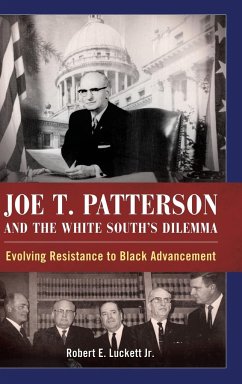As Mississippi's Attorney General from 1956 to 1969, Joe T. Patterson led the legal defense for Jim Crow in the state. He was inaugurated for his first term two months before the launching of the Sovereignty Commission, whose purpose-"to protect the sovereignty of Mississippi from encroachment thereon by the federal government"-rehashed a century-old states' rights mantra couched in the rhetoric of massive resistance. Despite the dubious legal foundations of that cause, Patterson supported the organization's mission from the start and served as an ex-officio leader on its board for the rest of his life. In addition to his leadership in the Sovereignty Commission, Patterson was a card carrying member of the segregationist watchdog group, the Citizens' Council, and, in his own words, had "spent many hours and driven many miles advocating the basic principles for which the Citizens' Councils were originally organized." Few ever doubted his Jim Crow credentials. That is, until September 1962 and the integration of the University of Mississippi by James Meredith. That fall, Patterson stepped out of his historical mold when he defied a circle of white power brokers, where he had been entrenched, and he did so at the height of the biggest crisis for Mississippi's racist order. Even after the Supreme Court decreed that Meredith must enter the university, Patterson opposed the school's desegregation and the federal intervention he saw at Ole Miss. But, he faced a dilemma that confronted all white southerners: how to maintain an artificially elevated position in southern society without resorting to violence or intimidation. Once the Supreme Court handed down its decision in Meredith v. Fair, the State Attorney General looked to temper the impact of the ruling without joining the mob.








